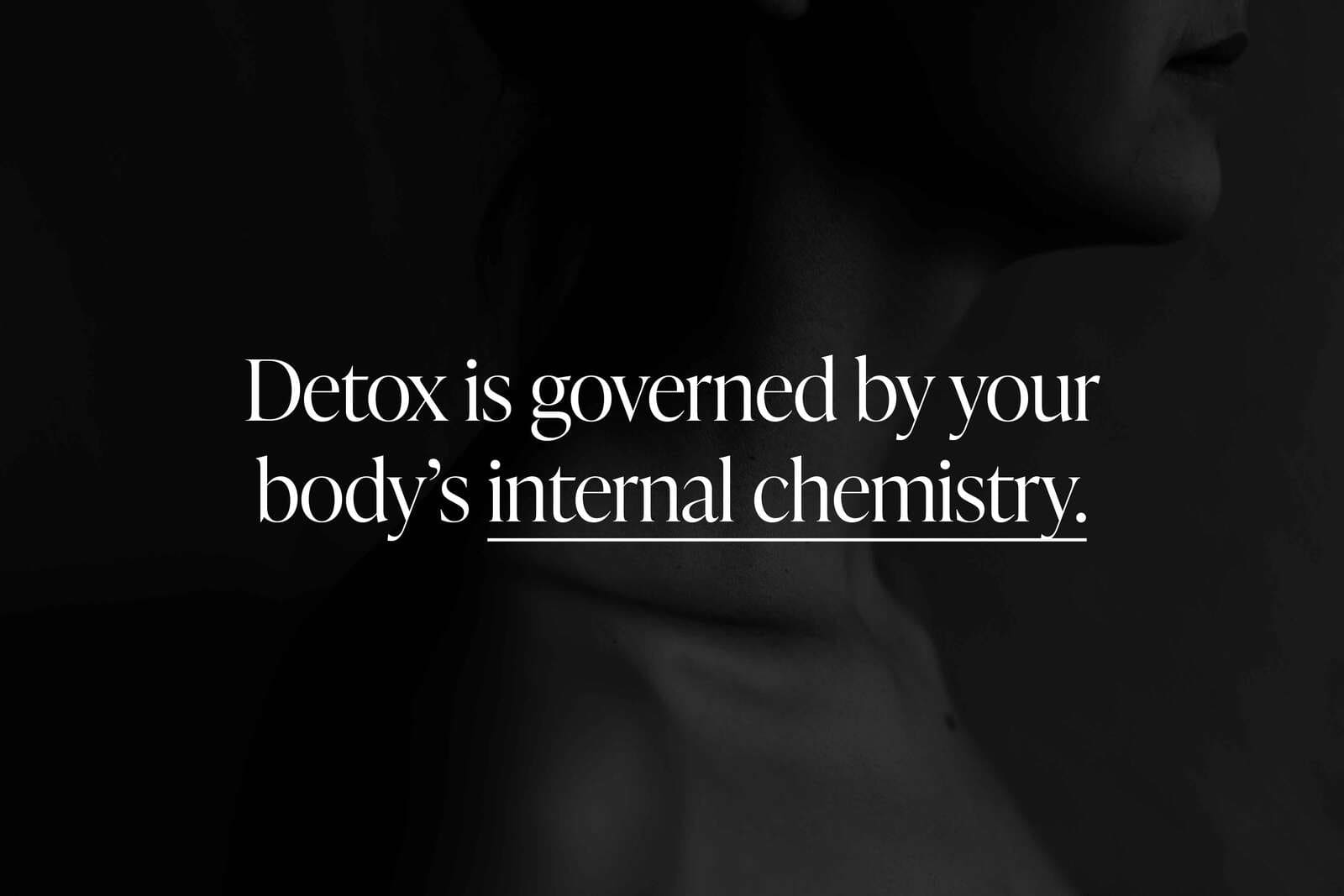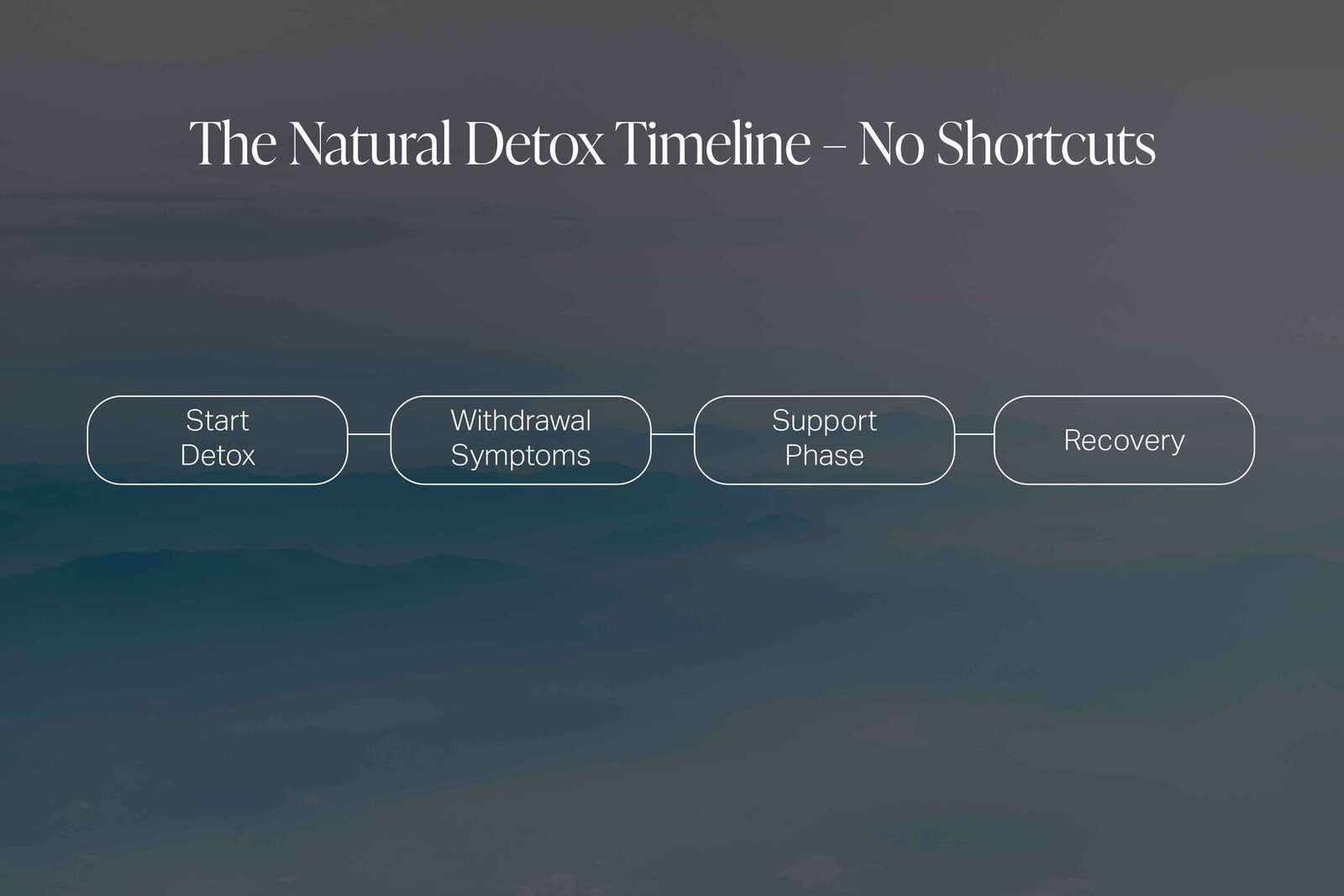Table of Contents
Alcohol detox is the process your body goes through to eliminate alcohol and restore normal function. Many people want to speed up this process to reduce withdrawal symptoms or return to a sober state more quickly. The truth is that while you can support your body during detox, you cannot change the liver’s metabolic rate. The average person processes alcohol at a rate of 0.015% BAC per hour, and no safe method exists to accelerate that.
What Actually Happens During Detox
Once you stop drinking, your body immediately begins metabolizing any remaining alcohol. The liver converts alcohol into acetaldehyde, a toxic byproduct, and then into acetate before eliminating it as water and carbon dioxide. This process is consistent regardless of hydration, exercise, or home remedies.
Withdrawal symptoms often appear within 6–12 hours after the last drink and may include anxiety, nausea, sweating, tremors, and insomnia. These symptoms occur because the brain and nervous system must adapt to functioning without alcohol’s depressant effects.

What You Can Do to Support Detox
While you cannot make the liver work faster, certain habits can improve your comfort and overall health during detox:
- Stay Hydrated: Alcohol is a diuretic, which causes dehydration. Water, herbal teas, and electrolyte solutions help restore fluid balance.
- Eat Nutrient-Dense Foods: Focus on lean proteins, whole grains, fruits, and vegetables to replenish nutrients depleted by heavy drinking.
- Get Rest: Sleep allows your body to repair itself and maintain energy levels during detox.
- Reduce Stress: Techniques such as deep breathing, meditation, and light stretching can ease anxiety and support emotional stability.
- Seek Medical Support: Detoxing at home is not always safe. Medical supervision ensures prompt treatment if symptoms worsen.
Myths About Speeding Up Detox
Several myths circulate about how to “flush out” alcohol quickly. Drinking coffee may make you feel more alert, but it does not accelerate alcohol metabolism. Sweating through exercise can improve circulation, but it won’t reduce your BAC. Supplements and herbal remedies may provide supportive nutrients, but they cannot override the liver’s processing rate.
For those facing frequent relapses or severe withdrawal, structured programs like alcohol rehab combine medical detox with counseling and relapse prevention strategies.
Why Patience Matters
The body needs time to recover from alcohol use, and pushing too hard can be counterproductive. Rushing into intense exercise or restrictive diets can increase stress and fatigue, making detox more difficult. Allowing the process to unfold naturally is the safest path forward.

Expanding Your Understanding of Detox and Recovery
How Long Does Alcohol Stay in Your System? Understanding the Detox Timeline
BAC decreases at a steady rate, but heavy use can significantly extend the period alcohol remains in the body.
How Long Does Alcohol Stay in Your Urine and Affect Testing?
Detection depends on the method — up to 48 hours for standard tests, 80 hours for EtG testing.
What Happens to Your Body During Alcohol Detox?
The body undergoes hormonal and neurological adjustments during detox, often causing temporary discomfort.
Why Does Alcohol Withdrawal Happen and How Can You Cope?
Withdrawal occurs due to the nervous system’s adaptation to alcohol; medical guidance can prevent severe complications.











